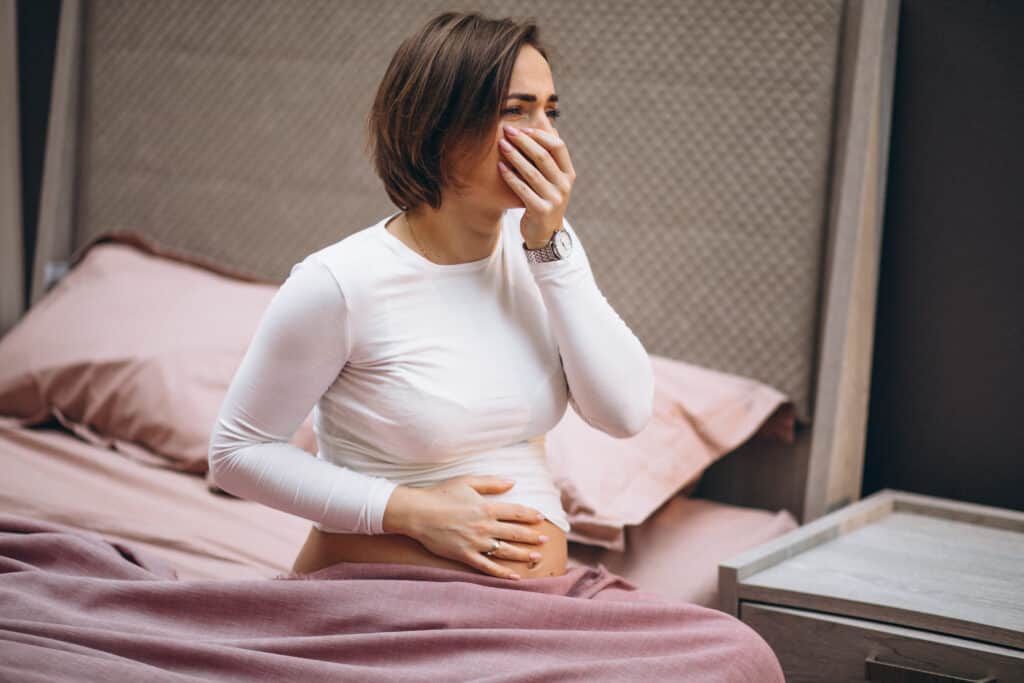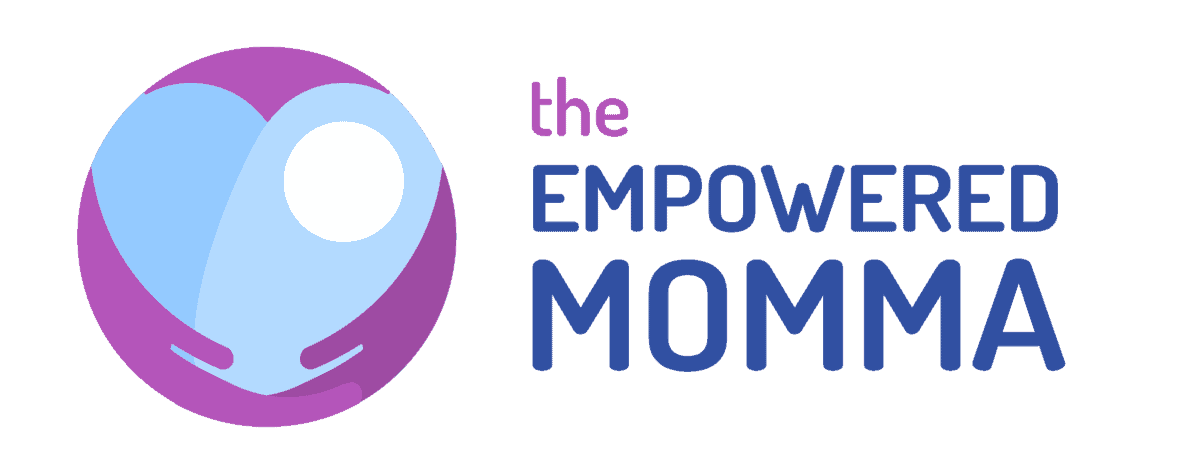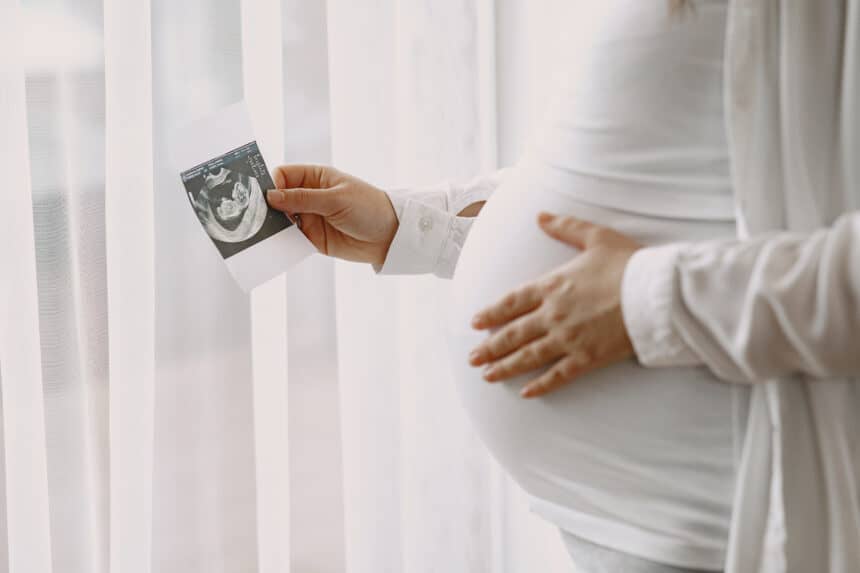Although the early signs of pregnancy vary from woman to woman, many symptoms are common and can help women learn they are pregnant early on.
Within the first month of pregnancy, you will notice how much change takes place in your body. The early pregnancy symptoms usually start with a missed period, bloating, cramping in the uterus, and tender breasts followed by morning sickness, frequent urination, and fatigue.
In this article, we will review many pregnancy symptoms you may be feeling that make you wonder, “Am I pregnant,” and give you information on how to handle each one. However, it is essential to note that some women may not feel any symptoms during the first few weeks.
Because of that, relying on symptoms only as a way to know if you’re pregnant isn’t as reliable, and you should always double-check with a pregnancy test or a blood test by your health care provider.
Am I Pregnant, or Is It PMS?
Many early pregnancy symptoms can be easily mistaken for PMS or vice versa because they are very similar. Women with irregular periods will have a more challenging time distinguishing whether it’s pregnancy or their period is late as usual.
Pregnancy Tools for Quick Detection
Instead of looking for signs of pregnancy when wondering, “Am I pregnant?” the most clear-cut way to know if you’re expecting a baby is to take a pregnancy test or do a blood test.
Pregnancy tests measure the hCG or the human chorionic gonadotropin, also known as the pregnancy hormone.
This hormone appears in your body from the moment of conception and is there to help your body support the fetus’s growth and development.
The hCG doubles every second day, and the more it grows, the easier it is for the pregnancy test to detect it.
Usually, three to four weeks need to pass from the first day of your last period before there’s enough hCG in your body for a positive pregnancy test.
When to Take a Pregnancy Test?
It takes two weeks after conception for hCG to build up in your body and be detectable by a home pregnancy test. So, for correct results, it is best to wait until you miss your period and then, a day or two after, test.
If you test too soon, you may get a false-negative result even if you expect a baby and feel some changes already. This isn’t to say that pregnancy tests are incorrect or unreliable, but they aren’t sensitive to the low content of hCG in your urine.
This includes the pregnancy test kits that are specifically made to detect early pregnancy. They do have a better sensitivity to the pregnancy hormone levels, but a woman can never know how her body reacts to early pregnancy and how much hCG she has in the initial period. So, if you feel any symptoms but get a negative pregnancy test, it is best to retest again a few days later.
The Five Most Common Early Signs of Pregnancy

When wondering, “Am I pregnant,” Women report many different signs of early pregnancy. Although it is a unique experience and every woman is different, some symptoms match and have become a way to know if you’re expecting before you test.
Here we will discuss the most common ones. If you don’t feel any of these or feel other symptoms, that’s all normal, but it’s best to contact your doctor. They can give you advice, answer all your questions, and provide you with information on what to expect and how to handle this new period in your life.
Missed Period
All early pregnancy signs will start with a missed period. Of course, because of the varying pregnancy hormones, some women may feel other symptoms and signs of pregnancy even before they miss their period, but there is a lot bigger chance that your body will catch up later on.
With that said, it is vital to listen to your body and not compare your pregnancy to someone else’s.
Once you miss your period, it means that your system has started producing the pregnancy hormones that stop ovulation and the shedding of the lining on your uterus. Please note that not all missed periods are due to pregnancy.
Sometimes irregular menstruation comes from a lot of stress, dieting, hormone imbalances, or excessive exercise. If you miss your period and test for pregnancy multiple times and keep getting a negative result, it is best to do a blood test. With it, your doctor can tell you the exact cause of the problem and give you health information on how to take better care of your body.
Mood Swings
As your hormone levels continue to change, there is a big chance that you will experience multiple changes in your mood during the day. Don’t go hungry for too long to combat the mood swings. Otherwise, that will contribute to the uneasy feeling. Meditation is highly recommended, too, as it helps you get in touch with yourself and cope with the changes better.
Breast Tenderness
Sore and enlarging breasts are one of the most commonly mistaken symptoms of pregnancy on both ends. PMS is characterized by breast sensitivity but also early pregnancy. This is a prevalent symptom, but if it’s the only one you’re feeling, it’s best to do a test or even take a blood test to confirm your pregnancy.
Morning Sickness

Morning sickness and nausea are present in about 70% of pregnant women. Hence there is a high likelihood of you experiencing this. The timing may be different for all as some women report it as an early sign of pregnancy while others have felt it a few months in. Though entirely normal, this symptom can become a problem if you’re dehydrated. To manage your nausea, saltine crackers and constant water drinking are the best way.
Feeling Tired
Fatigue is another common sign for women in the first trimester and gets better in the second. This sign of pregnancy happens because of high levels of the hormone progesterone. Some women report that they feel fatigued once again in the third trimester, but that’s relatively rare and is more manageable the second time.
Additional Pregnancy Symptoms
There are numerous other early signs of pregnancy between the first and second trimester, but these aren’t too common. If experiencing any of them, rest assured that it’s all normal and will resolve by the second trimester.
Implantation Bleeding
Spotting or light bleeding is a symptom that appears when the embryo implants in the lining of your uterus. You may notice this sign several days after conception, and you may even mistake it for your period. However, the amount is much less than a regular period and looks like tiny pink drops of blood or a brownish discharge from the vagina.
Food Aversions and Cravings

When you expect a baby, you may discover that the food you once loved is unbearable now. You cannot even be in the same room where it’s cooked. At the same time, the food you have never tried or never liked may start to be more appealing now.
All these cravings and aversions will balance once you enter the later stages of pregnancy. Until then, listen to your body and give it what it wants. Of course, it’s best to emphasize fiber-rich foods and whole, nutritious food, but don’t ignore your cravings.
Am I Pregnant – Final Say
If you are wondering, “Am I pregnant,” it is best to get in tune with your body so that you can get a clear answer even when it’s too early for any of the pregnancy tools for testing.
However, waiting to miss your period or even get other early signs of pregnancy and then doing a pregnancy test is the surest way of getting correct results.
The earlier you find an answer to the question “Am I pregnant,” the better because you can immediately start with prenatal care. Visit your doctor as soon as you find out you are pregnant. They will give you advice and all the information to your questions that you might have.

